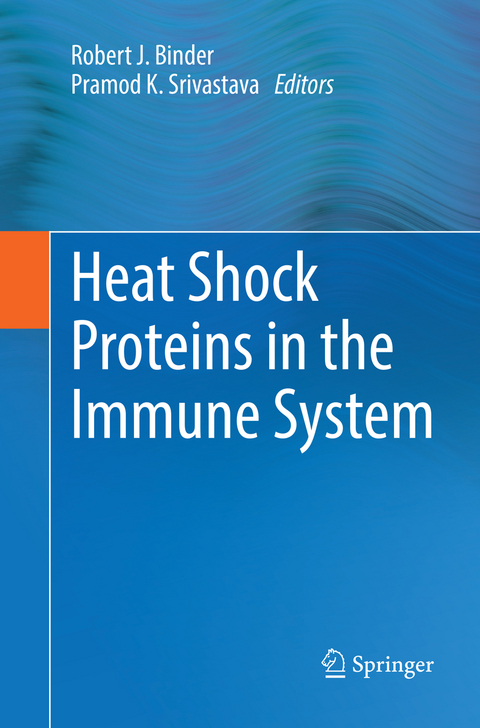
Heat Shock Proteins in the Immune System
Springer International Publishing (Verlag)
978-3-030-09862-9 (ISBN)
Pramod K. Srivastava, Department of Immunology, University of Connecticut Health CenterRobert J. Binder, Department of Immunology, University of Pittsburgh
Introduction and history.- Part I: Structure of the HSPs in relation to chaperoning peptides and proteins.- Chapter 1: Hsp70-subsrate interactions.- Chapter 2: Molecular Chaperone Inhibitors.- Part II: Exposure of HSPs to immune cells.- Chapter 3: Extracellular Heat Shock Proteins as Stress Communication Signals.- Part III: Regulation of immune responses by extracellular HSPs.- Chapter 4: The Heat Shock Protein-CD91 pathway and Tumor Immuno-surveillance.- Chapter 5: Bridging the gaps in the vaccine development: Avant-garde vaccine approach with secreted heat shock protein gp96-Ig.- Chapter 6: Regulation of the Extracellular Matrix by Heat Shock Proteins and Molecular Chaperones.- Chapter 7: Heat shock protein mediated T cell responses in pathogen infections.- Chapter 8: An ancestral immune surveillance system in the amphibian Xenopus connecting certain heat shock proteins with classical and nonclassical MHC class I molecules.- Chapter 9: Inhibition of HSPs for Enhanced Immunity.
| Erscheinungsdatum | 17.01.2019 |
|---|---|
| Zusatzinfo | X, 185 p. 22 illus., 20 illus. in color. |
| Verlagsort | Cham |
| Sprache | englisch |
| Maße | 155 x 235 mm |
| Gewicht | 308 g |
| Themenwelt | Medizin / Pharmazie ► Medizinische Fachgebiete ► Onkologie |
| Studium ► Querschnittsbereiche ► Infektiologie / Immunologie | |
| Naturwissenschaften ► Biologie ► Biochemie | |
| Schlagworte | Biological Pathways • Heat shock proteins • HSP inhibitors • immune system • Infectious Diseases • innate T cells • Vascular Normalization |
| ISBN-10 | 3-030-09862-1 / 3030098621 |
| ISBN-13 | 978-3-030-09862-9 / 9783030098629 |
| Zustand | Neuware |
| Informationen gemäß Produktsicherheitsverordnung (GPSR) | |
| Haben Sie eine Frage zum Produkt? |
aus dem Bereich


